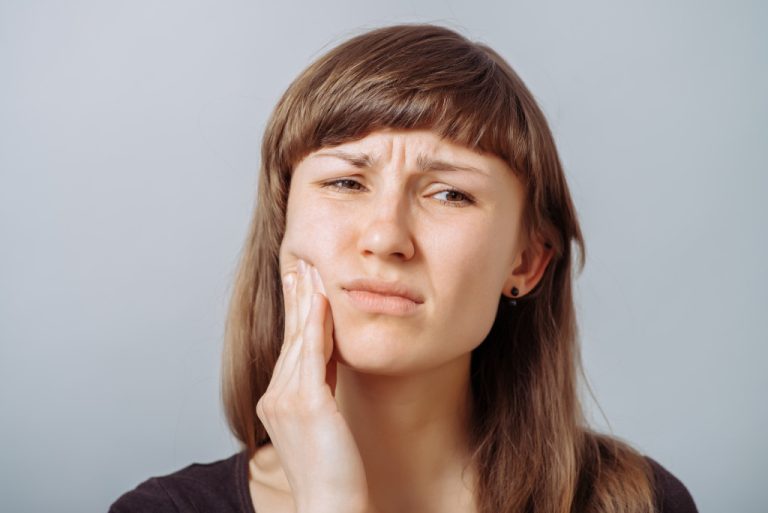• Receding gums is an oral health condition caused by gradually pulling the gums away from the teeth, leading to tooth sensitivity, gum disease, and even tooth loss.
• Common signs and symptoms include redness or swelling in the gums near affected teeth, tenderness or pain, and more.
• The causes of receding gums include poor oral hygiene habits, smoking, excessive alcohol consumption, and aging.
• Treatment options for receding gums include replacing lost teeth, brushing and flossing regularly, oil pulling, and maintaining a healthy diet.
• It’s essential to take steps to prevent receding gums before it worsens; if you’re concerned, reach out to your dentist right away.
Receding gums, also known as gum recession, is an oral health condition that affects many people. It happens when the gums gradually pull away from the teeth and leave them exposed. If left untreated, this can lead to tooth sensitivity, gum disease, and even tooth loss. But don’t worry! With proper care, receding gums can be managed and reversed. So here’s a look at what you need to know about receding gums.
Signs and Symptoms of Receding Gums
The signs and symptoms of receding gums are often subtle but can become more noticeable over time. Common symptoms include redness or swelling in the gums near the affected teeth; tenderness or pain when brushing or eating; increased sensitivity of the impacted teeth; bad breath; and visible gaps between your teeth and your gum line. If you experience any of these symptoms, you should see a dentist immediately so they can diagnose the problem and recommend treatment options.
What Causes Receding Gums?
There are many reasons for receding gums. Here are some of them:
Poor Oral Hygiene Habits
Poor oral hygiene habits are the most common cause of receding gums. For example, not brushing your teeth twice a day and flossing regularly can lead to plaque buildup on your teeth, which can eventually cause your gums to recede. Additionally, if you are not using an appropriate toothbrush (i.e., one with soft bristles), this can also contribute to gum recession over time.

Smoking
Another significant risk factor for gum recession is smoking. Smoking cigarettes or other tobacco products increases the number of bacteria in your mouth that can cause damage to your teeth and gums over time; this creates an environment in which gum recession is more likely to occur. In addition, the effects of smoking on one’s teeth and gums are even more pronounced if someone already has poor oral hygiene habits (see above).
Alcohol
Smoking isn’t the only vice that can lead to receding gums. Excessive alcohol consumption, especially combined with smoking, can also increase your risk of gum recession.
Aging
As people age, their bodies naturally change, including our mouths! As people get older, the amount of saliva decreases, which means there is less protection against bacteria that cause plaque buildup on their teeth and gums. Over time, this increased risk for plaque buildup leads to an increased risk of receding gums.
Treatment Options for Receding Gums
Several treatment options are available for receding gums, depending on the severity of the condition. Here are some treatments you can do today:
Replace Lost Teeth
The gaps between your teeth can be home to bacteria, and bacteria infection can lead to the further recession of your gums. Dental implants are your best option for replacing lost teeth. These implants are made of titanium and are fused to your jawbone, which helps to stop further gum recession.

Brush and Floss Regularly
It’s essential to brush your teeth twice a day for two minutes and floss daily. This will help reduce plaque buildup on the teeth and gums, preventing further recession. It’s also essential to use a soft-bristled brush, as this will be gentler on your gums.
Oil Pulling
Oil pulling is an ancient practice involving swishing oil around your mouth for several minutes. This can help remove bacteria and toxins from your mouth and reduce the receding of your gums.
Healthy Diet
Lastly, maintaining a healthy diet is critical for reversing receding gums. Eating foods rich in vitamins and minerals, like fruits and vegetables, can help strengthen your teeth and promote gum health.
Receding gums can have severe consequences if left untreated, so it’s essential to recognize and take steps to prevent it before it worsens. While proper oral hygiene is vital for avoiding gum recession in the first place, professional treatments are available if needed, such as scaling and root planing or surgical intervention in more severe cases. So if you’re concerned about receding gums or notice any signs or symptoms, be sure to reach out to your dentist right away for help!













